The students and staff at Machemo Primary School labor tirelessly to collect sufficient water to meet their daily needs.
The large school population of 750 students and 24 staff generally consumes the water brought to the school by students each morning before noon, then they must waste valuable learning time throughout the day as their teachers send them out to search for and collect additional water.
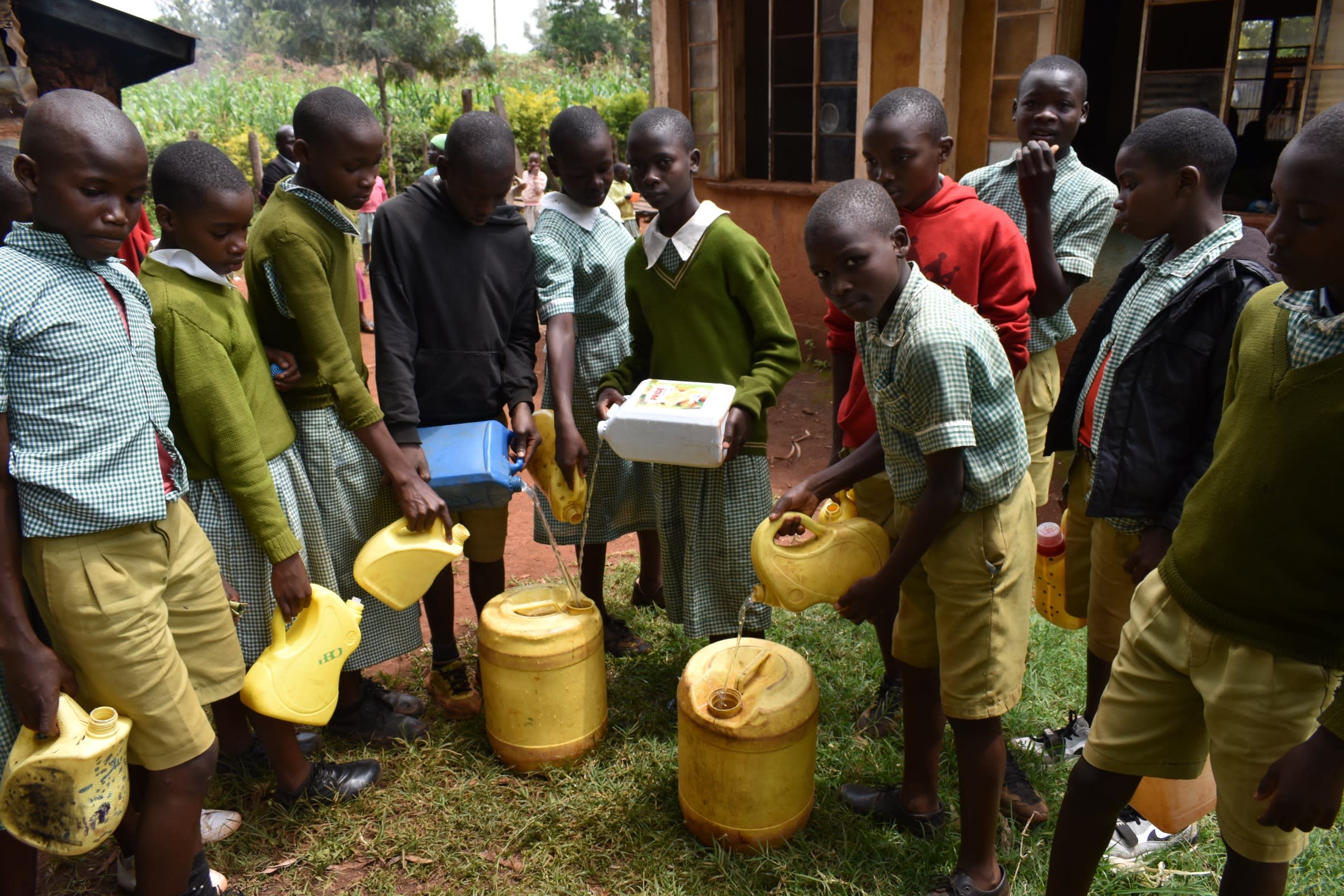
"Girls in this school tie the little yellow jerricans around their small waists using the laces on their dresses. This is to ensure the container doesn't get lost. A lost container means punishment from the duty master when it's water fetching time. In general, the pupils lose so much play and study time in the name of looking for water," said our field officer Lillian Achieng.
A rainwater harvesting tank on the school campus fills when it rains, but it only provides enough water for the school kitchen and is in poor shape. Its drawing point is dirty and missing a cover and a tap, and the improvised collection pipes make the water quality questionable.
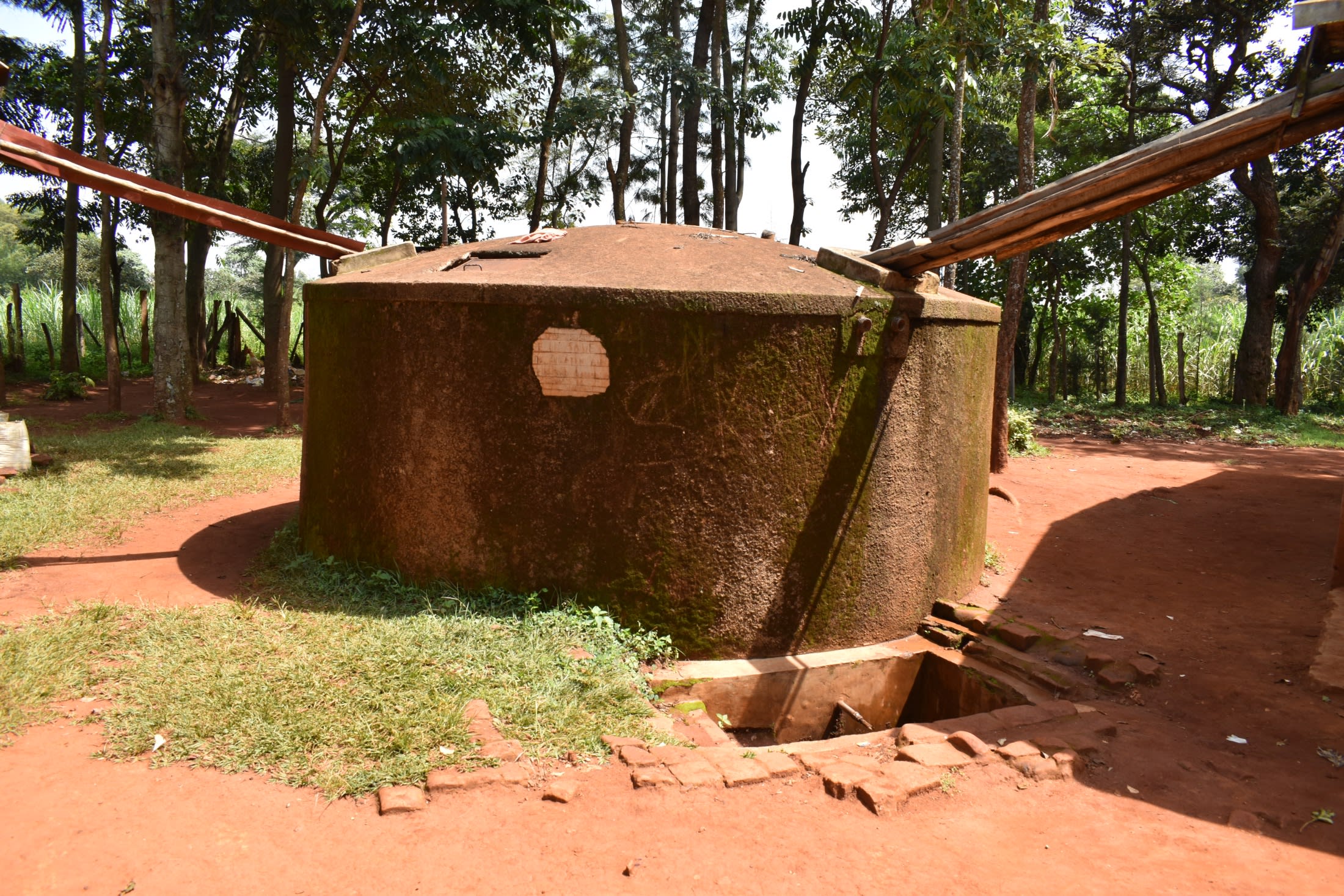
The alternative is to collect water from the local river, but it also presents several challenges. The water appears cloudy and muddy and is open to contamination. Animal dung from cows that come to quench their thirst, and the leftovers from community members' laundry washing are visible on the river bank.
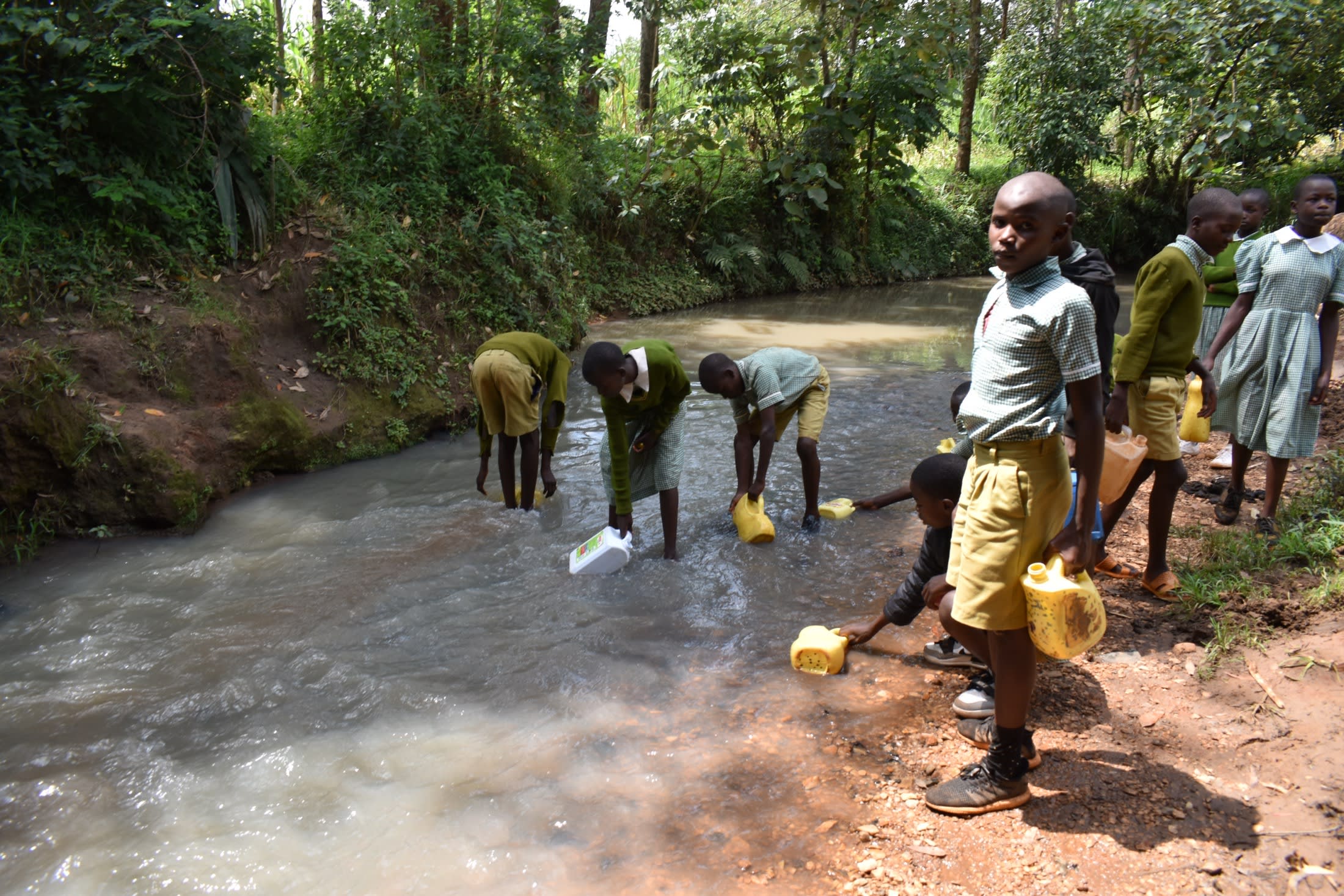
"Fridays are normally hectic for me. This is when the pupils do their general cleaning. Following these young champs to the river and back is hectic," said 29-year-old teacher Amos Muyale, shown by the river below.
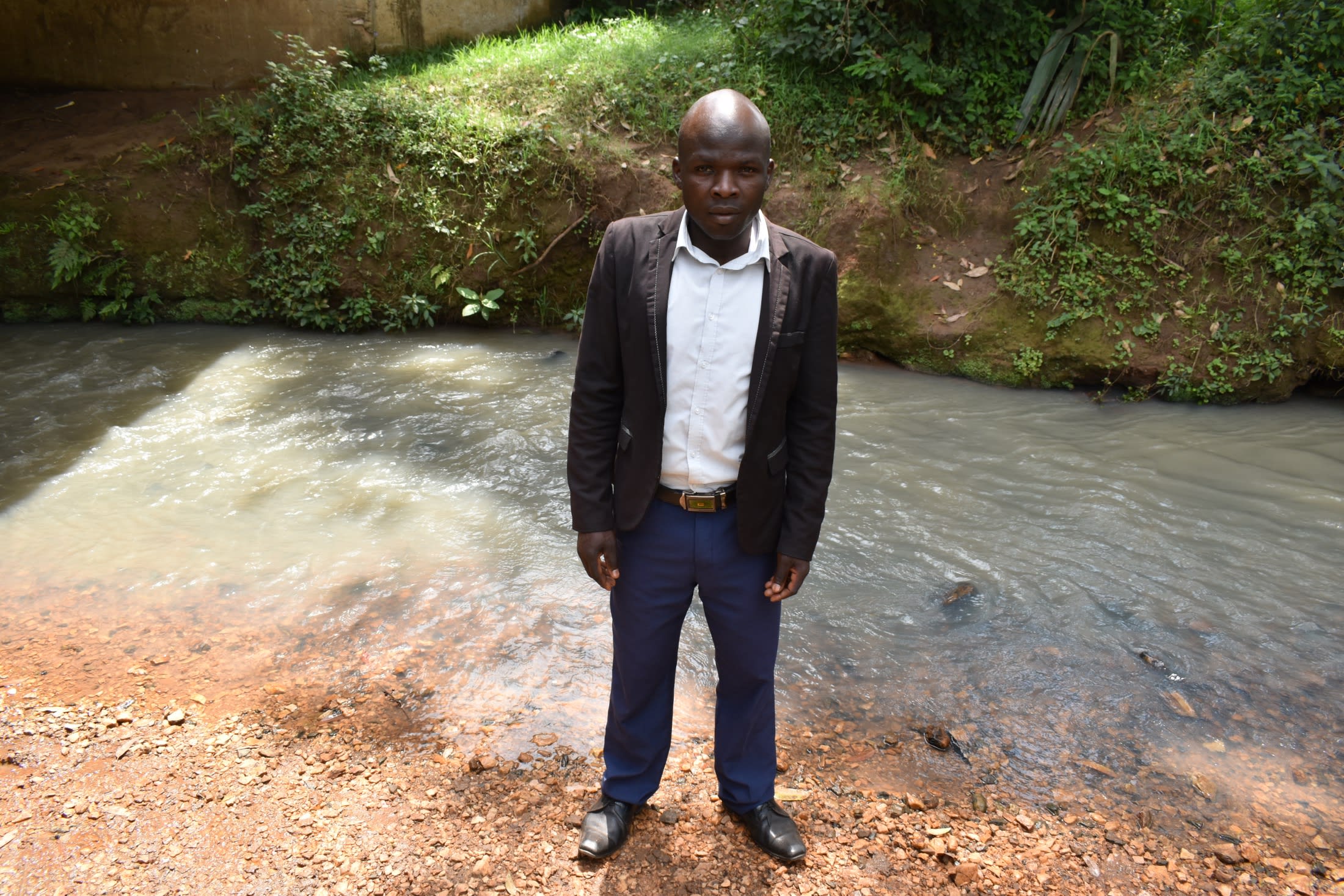
The road used by students to access the river is dangerous and frequented by heavy tractors that ferry sugarcane from the farms and speedy motorbikes.
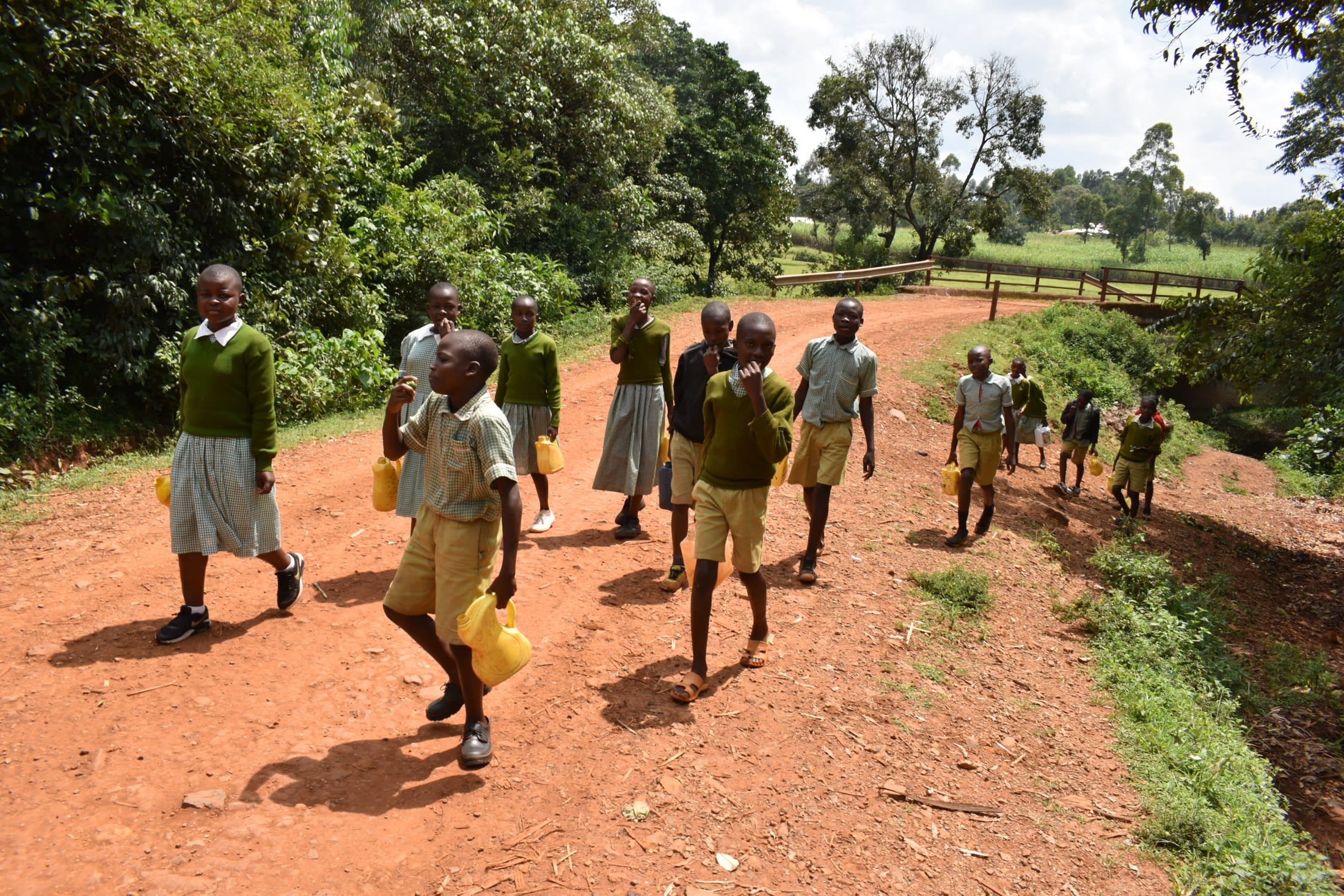
And when some students leave the school campus without a teacher accompanying them to collect water, they get distracted and get in trouble in other ways, wasting their valuable learning time.
Lillian reported: "Some students end up going to community farms to steal farm crops like sweet potatoes and sugarcane. This has resulted in endless cases between the school and the community members."
"Sometimes we release them on their own, and so much time is wasted since they'll either be slow or they will go plucking guavas, not minding the school hours," said Amos.
"I love being neat, but fetching water, especially out of school, makes me get dirty because we have to move up and down to get the water. Some community members are also hostile when they see us. I lose so much time out there, the time I would have used to study in class," said 14-year-old Mitchell W., shown below collecting water from the river.
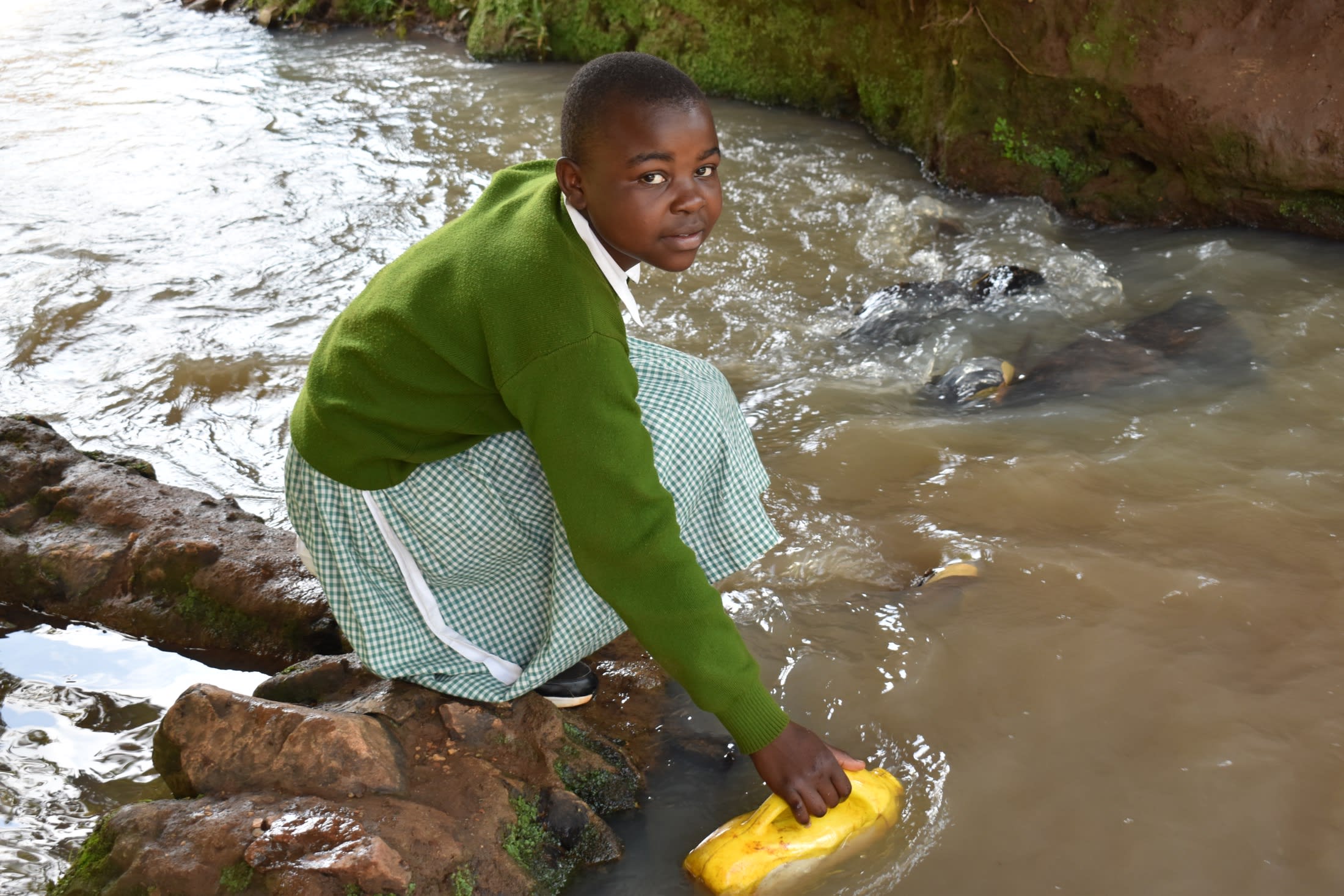
Hopefully, with their very own reliable water source on campus, students will be able to get back to learning, and there will be plenty of safe water to meet all of their needs.
What We Can Do:
New Well
We conducted a hydrogeological survey at this school and the results indicated the water table beneath it is an ideal candidate for a borehole well. Due to a borehole well's unique ability to tap into a safe, year-round water column, it will be poised to serve all of the water needs for this school's large population, even through the dry months.
The school will help collect the needed construction materials such as sand, rocks, and water for mixing cement. They will also provide housing and meals for the work team, in addition to providing local laborers. We will complement their materials by providing an expert team of artisans and drilling professionals, tools, hardware, and the hand-pump. Once finished, water from the well will then be used by the school's students and staff for drinking, handwashing, cooking, cleaning, and much more.
Handwashing Stations
There is currently nowhere for students to wash their hands after using the latrines or before eating lunch, let alone the water to do so.
The student health club will oversee the two new handwashing stations we will provide, and make sure they are kept clean and in working condition. The club leaders will fill the handwashing stations with water daily and make sure they are always supplied with a cleaning agent such as soap or ash.
VIP Latrines
We will construct two triple-door latrine blocks using local materials that the school will help gather. Three doors will serve the girls and three doors will serve the boys. All of these new latrines will have cement floors that are designed to be easy to use and to clean. And with a rain tank right on school property, there should be enough water to keep them clean.
Training on Health, Hygiene, COVID-19, and More
We will hold a one-day intensive training session with students, teachers, and parents. This training will cover a wide range of topics including COVID-19 symptoms, transmission routes, and prevention; personal and environmental hygiene; and the operation and maintenance of the well, latrines, and handwashing stations. There will be a special emphasis on handwashing.
Our team of facilitators will use a variety of methods to train, including participatory hygiene and sanitation transformation, and asset-based community development. We will initiate a student health club, which will prepare students to lead other pupils into healthy habits at school and at home. We will also lead lectures, group discussions, and provide illustrative handouts to teach health topics and ways to promote good hygiene practices within the school including handwashing and water treatment. We will then conduct a series of follow-up trainings before transitioning to our regularly scheduled support visits throughout the year.
We and the school strongly believe that all of these components will work together to improve standards at this school, which will help lead to better student academic performance and will help unlock the opportunity for these students to live better, healthier lives.





 Borehole Well and Hand Pump
Borehole Well and Hand Pump
 Rehabilitation Project
Rehabilitation Project

































